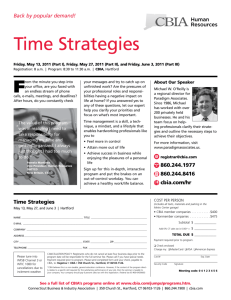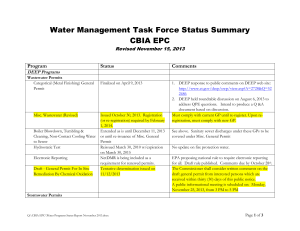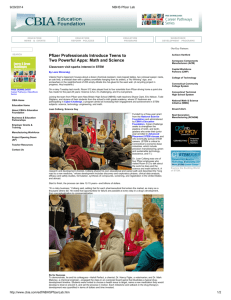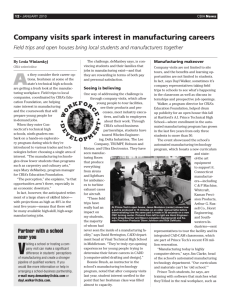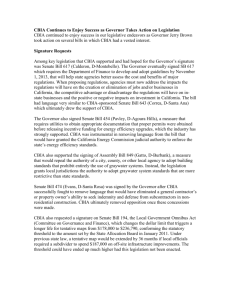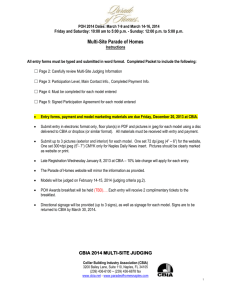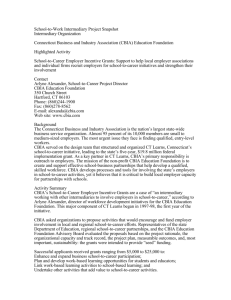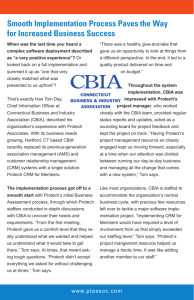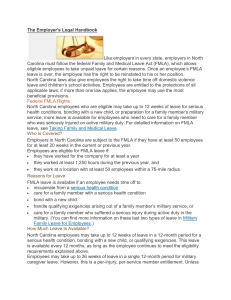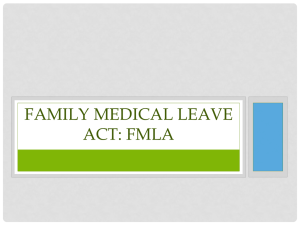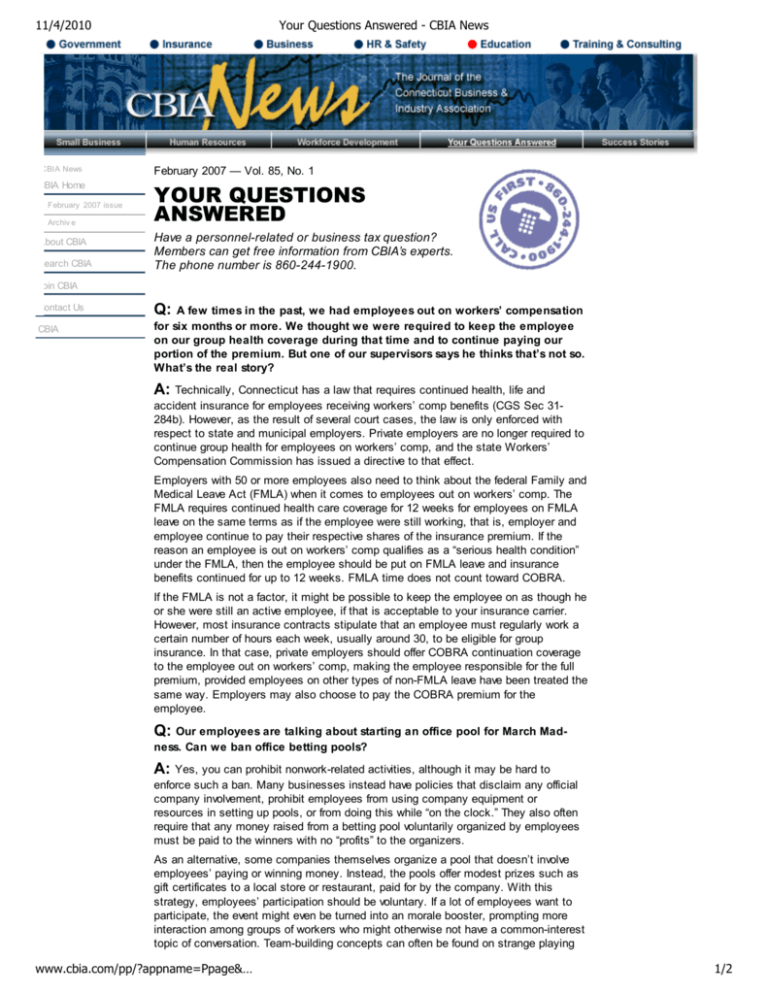
11/4/2010
CBIA News
CBIA Home
February 2007 issue
Archiv e
About CBIA
Search CBIA
Your Questions Answered - CBIA News
February 2007 — Vol. 85, No. 1
YOUR QUESTIONS
ANSWERED
Have a personnel-related or business tax question?
Members can get free information from CBIA’s experts.
The phone number is 860-244-1900.
Join CBIA
Contact Us
CBIA
Q:
A few times in the past, we had employees out on workers’ compensation
for six months or more. We thought we were required to keep the employee
on our group health coverage during that time and to continue paying our
portion of the premium. But one of our supervisors says he thinks that’s not so.
What’s the real story?
A: Technically, Connecticut has a law that requires continued health, life and
accident insurance for employees receiving workers’ comp benefits (CGS Sec 31284b). However, as the result of several court cases, the law is only enforced with
respect to state and municipal employers. Private employers are no longer required to
continue group health for employees on workers’ comp, and the state Workers’
Compensation Commission has issued a directive to that effect.
Employers with 50 or more employees also need to think about the federal Family and
Medical Leave Act (FMLA) when it comes to employees out on workers’ comp. The
FMLA requires continued health care coverage for 12 weeks for employees on FMLA
leave on the same terms as if the employee were still working, that is, employer and
employee continue to pay their respective shares of the insurance premium. If the
reason an employee is out on workers’ comp qualifies as a “serious health condition”
under the FMLA, then the employee should be put on FMLA leave and insurance
benefits continued for up to 12 weeks. FMLA time does not count toward COBRA.
If the FMLA is not a factor, it might be possible to keep the employee on as though he
or she were still an active employee, if that is acceptable to your insurance carrier.
However, most insurance contracts stipulate that an employee must regularly work a
certain number of hours each week, usually around 30, to be eligible for group
insurance. In that case, private employers should offer COBRA continuation coverage
to the employee out on workers’ comp, making the employee responsible for the full
premium, provided employees on other types of non-FMLA leave have been treated the
same way. Employers may also choose to pay the COBRA premium for the
employee.
Q: Our employees are talking about starting an office pool for March Madness. Can we ban office betting pools?
A: Yes, you can prohibit nonwork-related activities, although it may be hard to
enforce such a ban. Many businesses instead have policies that disclaim any official
company involvement, prohibit employees from using company equipment or
resources in setting up pools, or from doing this while “on the clock.” They also often
require that any money raised from a betting pool voluntarily organized by employees
must be paid to the winners with no “profits” to the organizers.
As an alternative, some companies themselves organize a pool that doesn’t involve
employees’ paying or winning money. Instead, the pools offer modest prizes such as
gift certificates to a local store or restaurant, paid for by the company. With this
strategy, employees’ participation should be voluntary. If a lot of employees want to
participate, the event might even be turned into an morale booster, prompting more
interaction among groups of workers who might otherwise not have a common-interest
topic of conversation. Team-building concepts can often be found on strange playing
www.cbia.com/pp/?appname=Ppage&…
1/2
11/4/2010
Your Questions Answered - CBIA News
fields, possibly leading to some work-related discussions and new business
opportunities.
[back to top]
© Copyright 2003 Connecticut Business & Industry Association, cbia.com. All rights reserved.
CBIA
350 Church Street
Hartford, CT 06103-1126
(860) 244-1900
E-mail Contact
www.cbia.com/pp/?appname=Ppage&…
2/2

